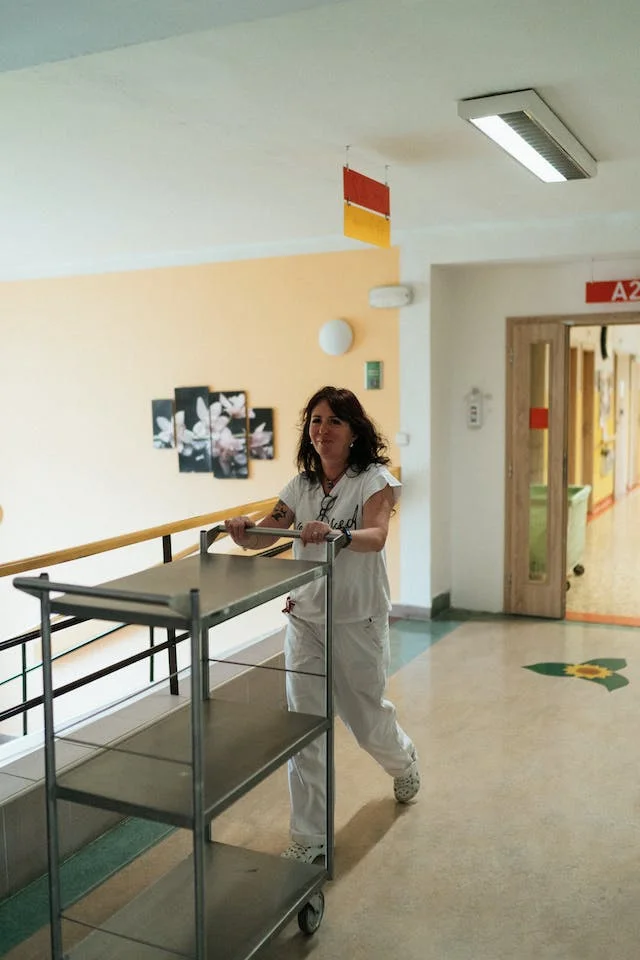Emergency Preparedness for Older Adults: 5 Tips to Ensure Safety
When it comes to emergency situations, being prepared is crucial, especially for older adults. Emergencies can happen unexpectedly, and having a plan in place can make a significant difference in ensuring the safety and well-being of older individuals.
In this blog post, I’ll share five practical tips for emergency preparedness tailored specifically for older adults. These simple yet effective strategies can help seniors and their families navigate through challenging situations with confidence and ease.
Here Are The Key Tips For Emergency Preparedness For Older Adults
Tip 1: Create an Emergency Kit
Having a well-stocked emergency kit can be a lifesaver during unexpected events. This kit should include essential items such as non-perishable food, water, medications, a flashlight, a first aid kit, and important documents like identification and medical records.
Ensure that the emergency kit is easily accessible and that you periodically check and update its contents. In times of distress, having these basic necessities readily available can provide a sense of security and comfort.
Tip 2: Establish a Communication Plan
Communication is key during emergencies. Ensure you have a reliable way to stay in touch with loved ones. Make a list of important contacts, including family members, neighbors, and friends. Share this list with your family and keep a copy in your emergency kit.
Consider having a simple communication plan that includes designated meeting places and a way to contact each other, such as a designated family member living in a different area. Additionally, explore the use of alert systems designed for seniors; I’ve written an article on the best panic-time solutions that you might find helpful.
Tip 3: Know Your Evacuation Routes
Understanding the evacuation routes in your area is crucial for ensuring a safe escape during emergencies like natural disasters or fires. Familiarize yourself with the nearest shelters and evacuation centers.
Keep a map of your locality that highlights these routes and locations. If you’re unsure about evacuation procedures, contact your local emergency management office for guidance. Knowing where to go and how to get there can make a significant difference in times of crisis.
Tip 4: Involve Family Members in Emergency Preparedness
Family plays a crucial role in the safety and well-being of older adults during emergencies. If you have an elderly family member, take the time to discuss and plan for potential emergencies. Ensure that everyone in the family is aware of the emergency kit, communication plan, and evacuation routes.
Regularly practice emergency drills to reinforce these plans and identify any areas that may need improvement. If you are a family member of an elderly individual, your involvement can make a significant impact on their overall preparedness and peace of mind.
Tip 5: Stay Informed and Updated
Knowledge is power, especially during emergencies. Stay informed about potential risks in your area, whether it’s related to weather conditions, natural disasters, or other local hazards. Sign up for alerts and notifications from local authorities and emergency services.
Keep a battery-powered weather radio handy to receive real-time updates. Being aware of the situation as it unfolds allows you to make informed decisions and take the necessary actions to stay safe.
What Can Family Members of an Elderly Individual Do in Times of Emergency?

In times of emergency, like a sudden health crisis or a natural disaster, family members play a crucial role in ensuring the safety and well-being of elderly individuals. Here are some simple yet effective steps that family members can take to support their elderly loved ones during challenging times.
Firstly, communication is key. Regularly check in with your elderly family member to understand their needs and preferences. In case of an emergency, having open lines of communication can help in coordinating assistance promptly. For instance, ask questions like, “Do you have any specific medications you need?” or “Is there a preferred emergency contact we should reach out to?”
Creating an emergency plan together is a practical way to prepare for unforeseen situations. Outline the necessary steps to take, including evacuation routes, contact information for healthcare providers, and a list of essential medications. This plan can serve as a guide for family members and caregivers during stressful times.
Moreover, it’s important to stay informed about the community resources available for seniors. Familiarize yourself with local emergency services, support organizations, and shelters. For instance, find out if there’s a community center that provides assistance for seniors during emergencies or a transportation service to evacuate them if needed.
Ensuring that important documents are easily accessible is another vital step. Compile a folder containing medical records, insurance information, identification, and a list of allergies. This ensures that all necessary documents are readily available for healthcare providers or emergency responders.
In the event of an emergency, designate a specific meeting point or contact person for family members. This helps in reuniting with the elderly family member if evacuation is necessary, minimizing confusion and stress.
Lastly, encourage neighbors to be aware of the elderly individual’s situation. Friendly neighbors can provide valuable support during emergencies, such as checking in on them or offering assistance if needed.
Conclusion
Emergency preparedness is a shared responsibility, and by implementing these simple tips, you can significantly enhance the safety and well-being of older adults in your family.
Creating an emergency kit, establishing a communication plan, knowing evacuation routes, involving family members, and staying informed are key components of a comprehensive emergency preparedness strategy.
Remember, being prepared doesn’t have to be complicated; it’s about taking simple, proactive steps to ensure the safety and security of our elderly loved ones.
